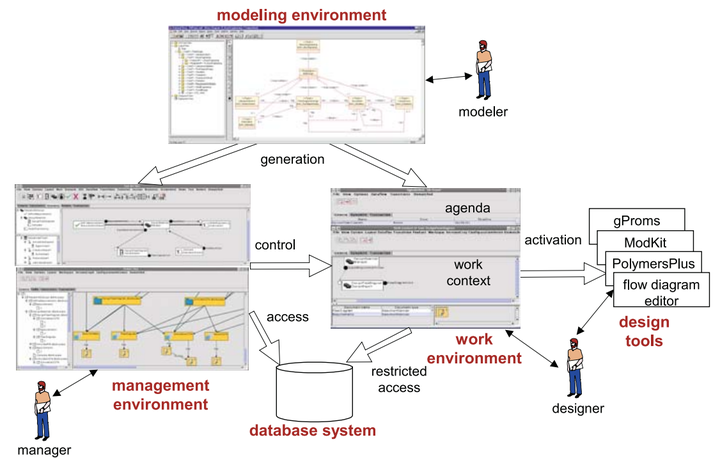
Abstract
Design processes in chemical engineering are hard to support. In particular, this applies to conceptual design and basic engineering, in which the fundamental decisions concerning the plant design are performed. The design process is highly creative, many design alternatives are explored, and both unexpected and planned feedback occurs frequently. As a consequence, it is inherently difficult to manage design processes, i.e. to coordinate the effort of experts working on tasks such as creation of flowsheets, steady-state and dynamic simulations, etc. On the other hand, proper management is crucial because of the large economic impact of the performed design decisions. We present a management system which takes the difficulties mentioned above into account by supporting the coordination of dynamic design processes. The management system equally covers products, activities, and resources, and their mutual relationships. In addition to local processes, interorganizational design processes are addressed by delegation of subprocesses to subcontractors. The management system may be adapted to an application domain by a process model which defines types of tasks, documents, etc. Furthermore, process evolution is supported with respect to both process model definitions and process model instances; changes may be propagated from definitions to instances and vice versa (round-trip process evolution).